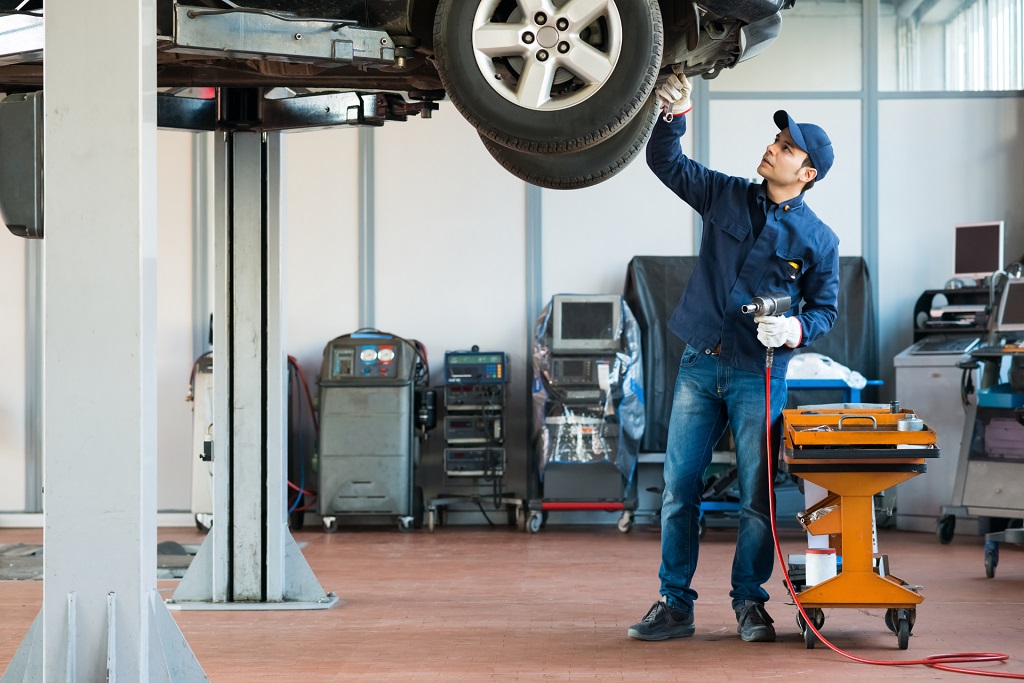
As you pause at a red traffic light, observing the flow of cars, trucks, and buses around you, have you ever wondered about the intricate mechanisms that give life to these automobiles? Or considered how this industry is evolving to meet the burgeoning demands for sustainability? If not, it's time to shift our gears and embark on an exploration of the mechanics in the sustainable auto industry.
This blog post aims to unravel the role of mechanical engineers and mechanics in this rapidly changing automotive landscape. As we navigate our journey, we will push the throttle on topics including the transition from fossil fuels to electric power, the development of efficient engines, and the pros and cons of this sustainable shift. Rev up your curiosity as we get set to leave no stones unturned!
Mechanic's Role in The Shift from Fossil Fuels to Electric Power
We're living in the era of the Electric Vehicle (EV) revolution, and mechanics are the unsung heroes behind this transformative shift. Mechanics provide the technical foundation for the design, repair, and maintenance of electric cars, thus playing a central role in their proliferation.
Mechanics harness their expertise to facilitate the efficient implementation of electric powertrain technologies. They straddle the line between traditional auto mechanical knowledge and advanced technology. They play a critical part in diagnosing and resolving issues prevalent in electric cars, such as battery-related problems and system software glitches.
As the adoption rate of electric cars surges, there will be an increasing demand for mechanics who are adept in EV technology. This evolving industry offers a unique opportunity for mechanics to upscale their skills and engage in lifelong learning.
Development of Efficient Engines – A Mechanic's Job
The key to a more sustainable auto industry lies in the development of efficient engines, and mechanics are at the forefront of this endeavour. They are deeply involved in the R&D stages, where they help design engines that consume less energy, emit less carbon and are vastly more efficient than their predecessors.
Mechanics play a hands-on role in the assembly of these engines, putting together different components and testing various facets of the engine's performance. Their insights into practical problems and solutions significantly contribute to continuous engine improvements.
In the post-production phase, mechanics meticulously maintain and repair these advanced engines, ensuring their maximum efficiency and longevity. The onus of sustainability, therefore, falls heavily on the shoulders of mechanics.
Sustainability In the Auto Industry: Pros and Cons
Just as every coin has two sides, the shift towards a sustainable auto industry also presents its own set of pros and cons. In this section, let's plunge into the key advantages and challenges that mechanics face in the era of sustainable vehicles.
On the bright side, the move towards sustainable auto production and usage drastically reduces the carbon footprint, thereby mitigating the effects of climate change. It also paves the way for vastly improved fuel efficiency and energy-saving technologies delivering long-term economic benefits for consumers.
However, this shift also brings with it new challenges. Mechanics must grapple with high upfront costs of training/education in new technologies, dealing with complex and sensitive systems, and regular updates in technology, making continuous learning a must. Balancing these factors remains crucial to a mechanic's successful adaptation to the sustainable auto industry.
Conclusion
Unquestionably, the sustainable auto industry's future revolves around the relentless wheels of mechanics. Their role extends much beyond the basic repair and maintenance tasks, contributing significantly to the design, production, and efficient operation of sustainable vehicles.
While they ride high on the benefits such as reduction in carbon emissions and enhanced fuel efficiency, they must also navigate the inevitable challenges that arrive with this transition. Undoubtedly, their adaptability and inclination towards continuous learning will drive their success in this changing landscape.
In this era of sustainable development, it is mechanics, the veritable heartbeats of the auto industry, who will lead innovation and transformation from the front. Embark on this ride with them; it promises to be an exhilarating journey towards a greener future.

No comments:
Post a Comment